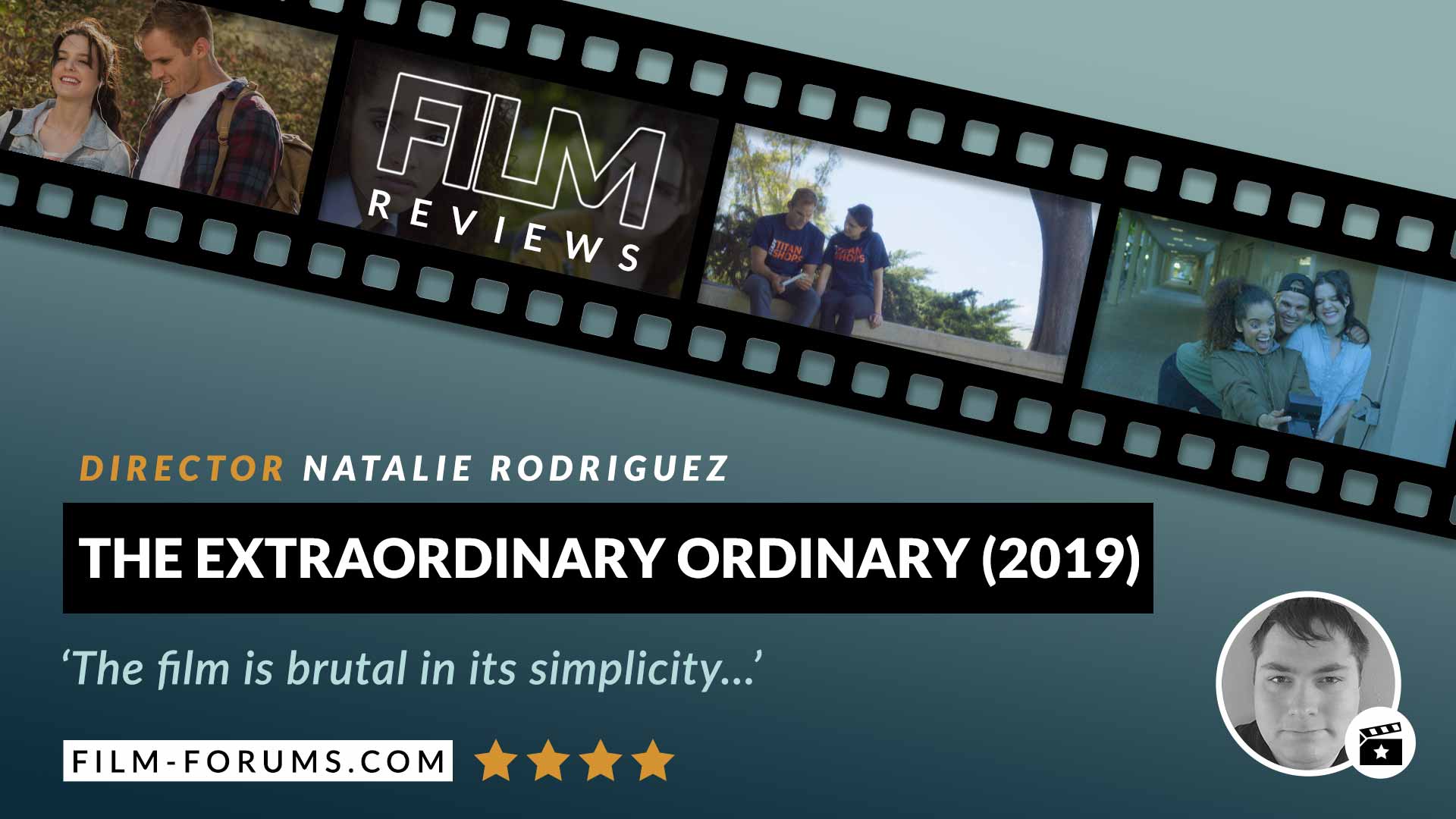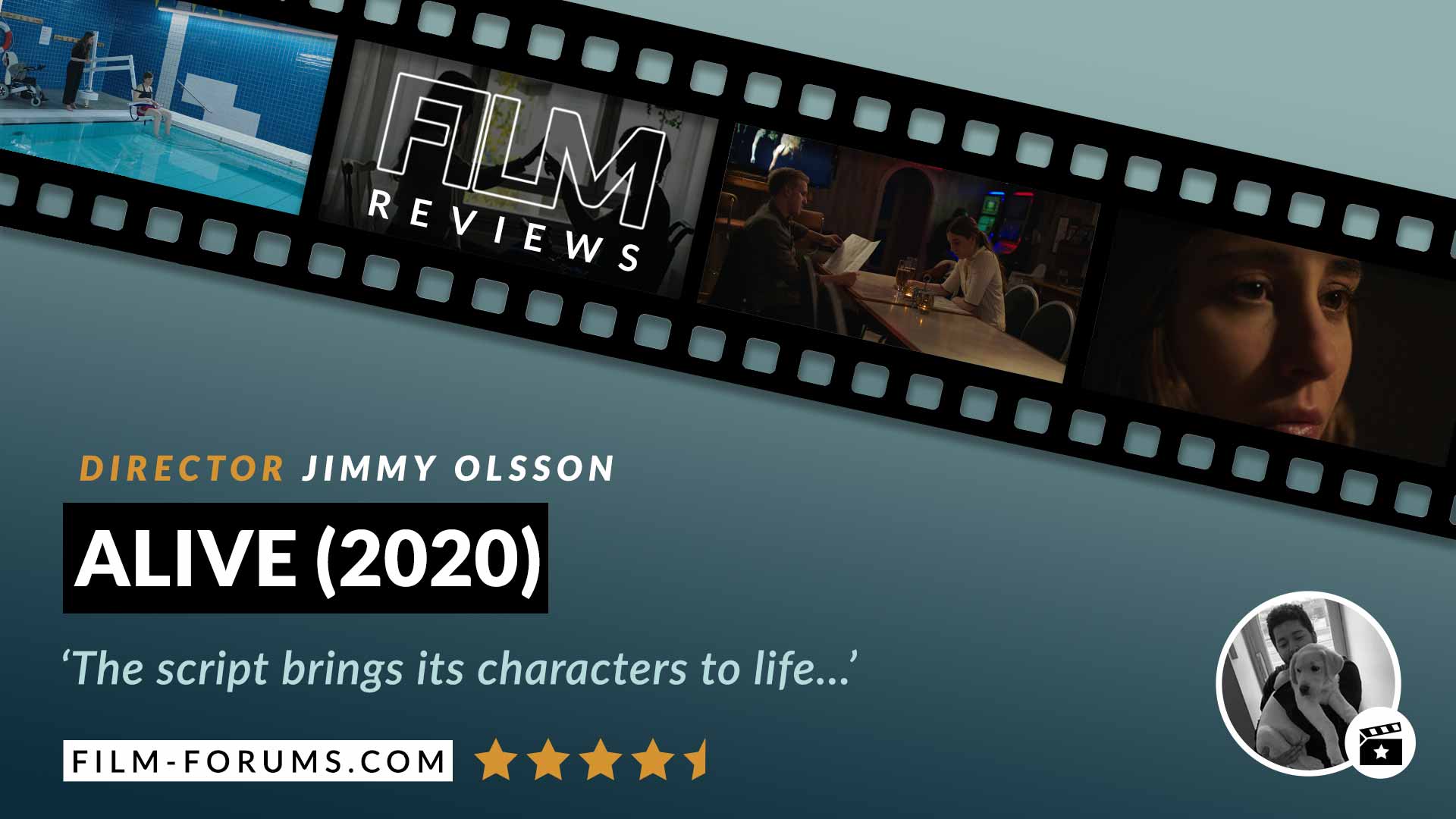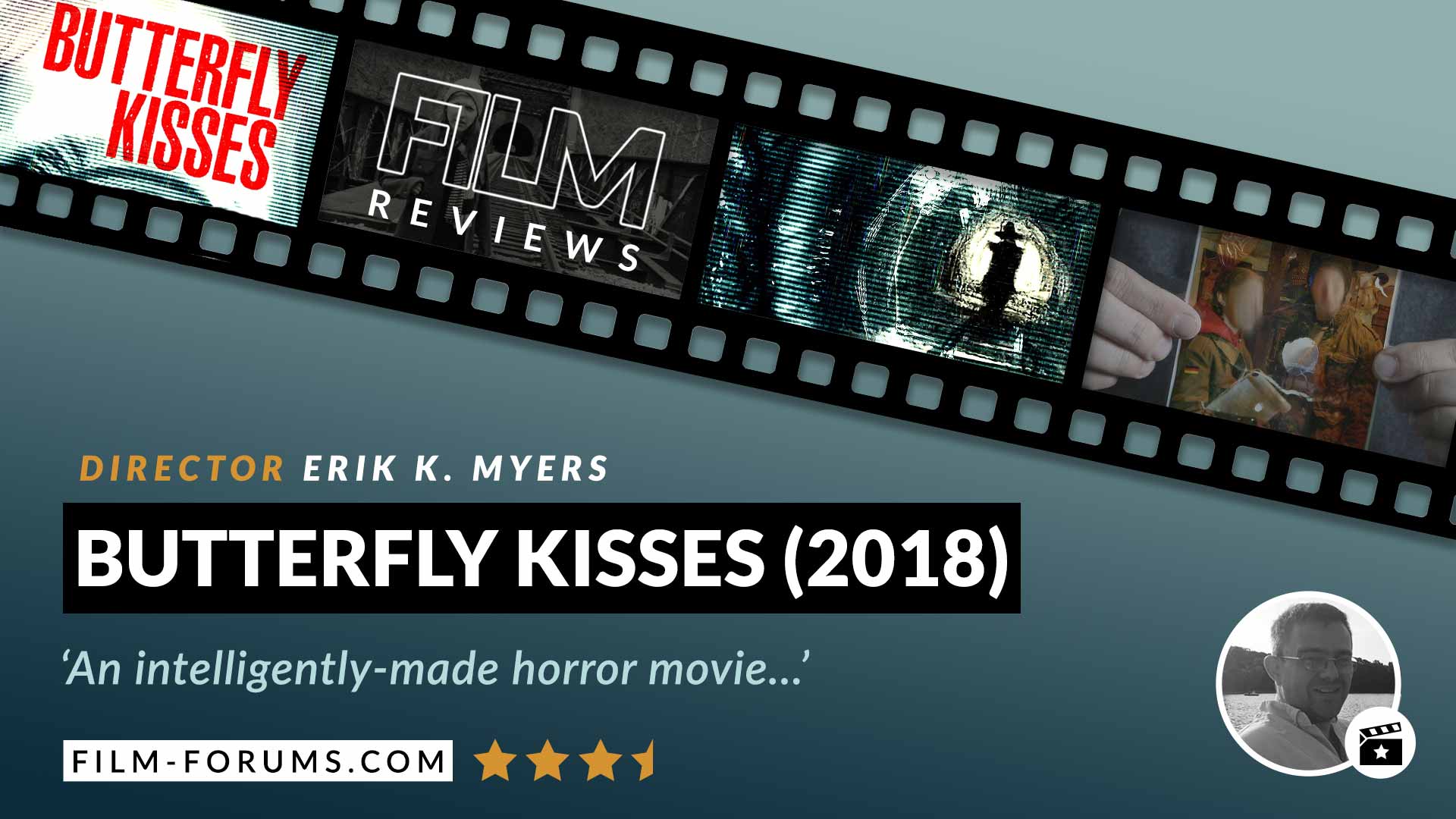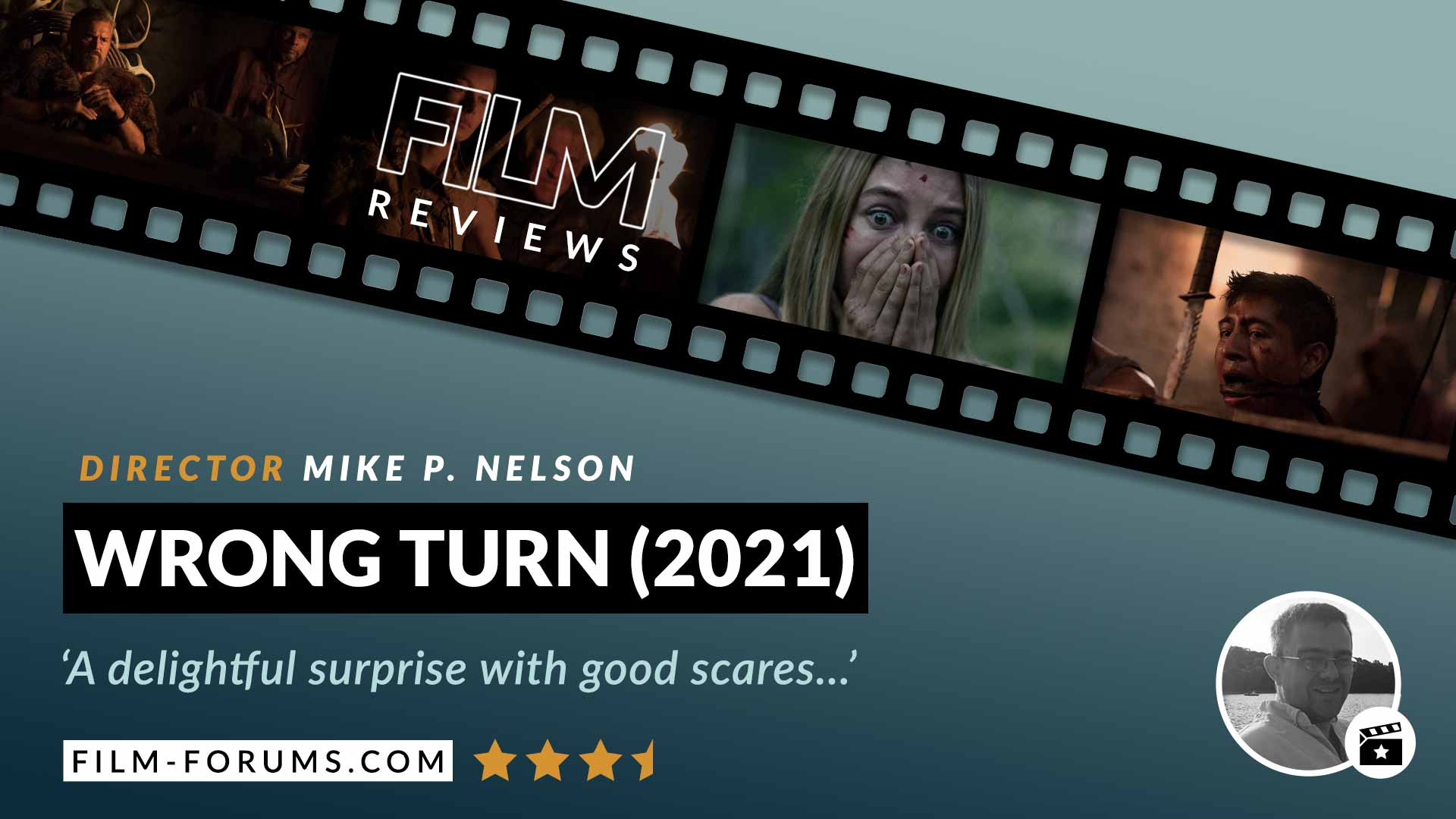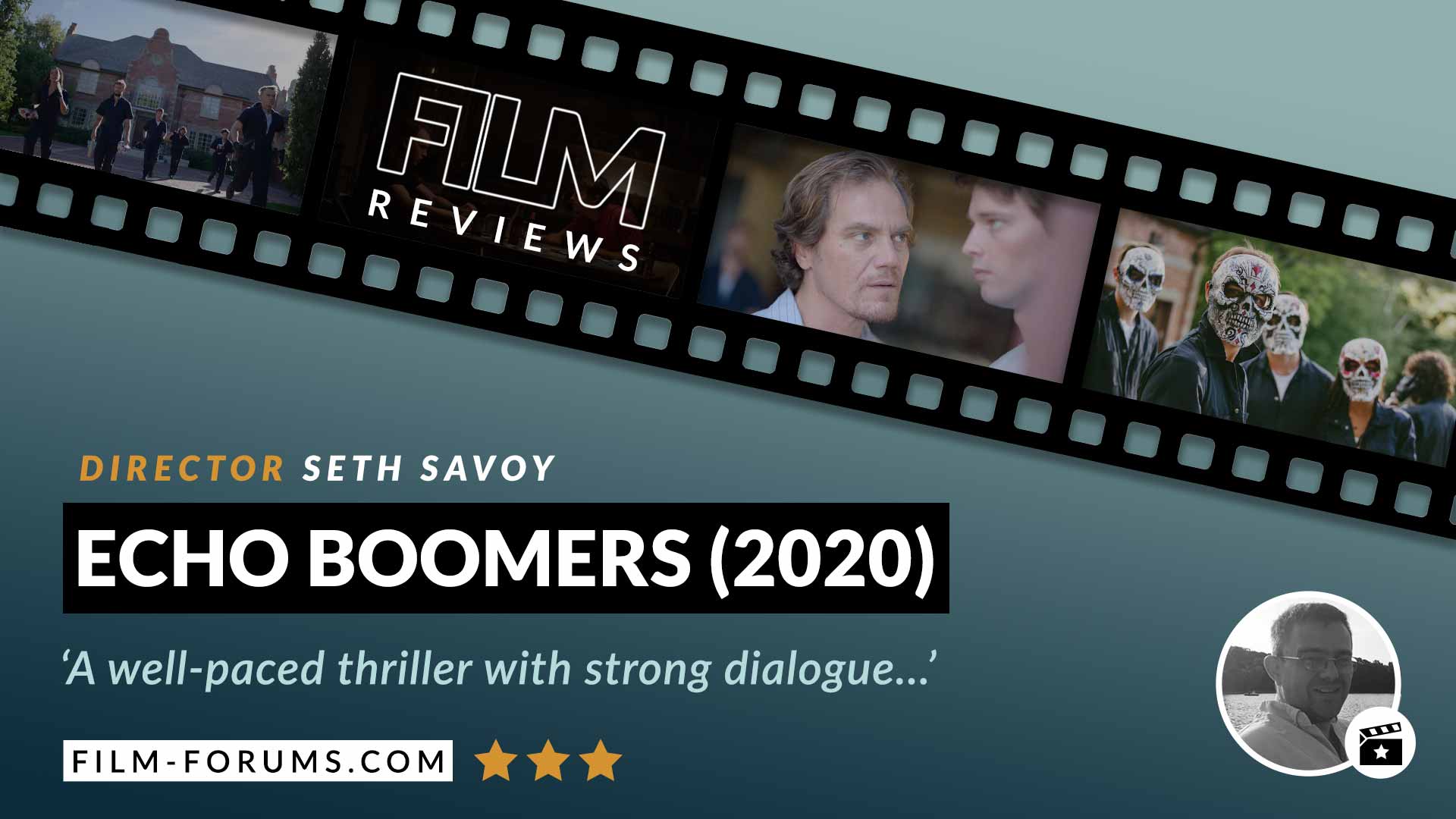Between its frank opening depicting a rather uncomfortable medical check, to a short but revealing discussion with a psychologist, The Extraordinary Ordinary (2019) lets you know straight away it won’t be padding around the subject of mental health. This is refreshing, as too often films which try (or claim) to broach topics involving mental health do so in a far-too diluted and screen-friendly fashion.
Disclaimer: This page contains affiliate link(s) to streaming platforms. This does not impact our content or editorial decisions. We may receive a commission for purchases made through these link(s).
The Extraordinary Ordinary (2019) by Natalie Rodriguez is tale of three new friends at a new school, and how this new friendship helps heal the past mental health issues of each. We view this drama through our main character Erica (Maddison Bullock – Westworld (2016 – ), 13 Reasons Why (2017 – ) ), as the fresh challenges of her new school dredge up an uncomfortable past, while friends Bianca (Ana Marte) and Alex (Alex Montalban) try to help, in turn sharing their own traumatic histories and mental health issues.

What’s holding you back?
An excellent line that stood out to me most was the psychologist’s stark line about his patient’s anxiety: “You have the tools […] so I don’t know what’s holding you back.” This shows how mental health treatment can be a double-edged sword. Yes it gives you the tools to manage your problems, yet too often it’s painted as a cure equatable to a medicine or surgery, “once it’s over you recover and it’s done” so to speak, and professionals within the medical field are not immune to such thinking.
The Extraordinary Ordinary (2019) shows without telling (as good writing should) how the unsaid is never gone. It shows fairly accurately (if occasionally a bit bluntly) how something most people would brush off can cut far deeper when the wounds are still fresh. From the outset and early on for our main character Erica she is subjected to one negative experience after another. Her mother (Della Lisi Kerr), refuses to see her off as she leaves town to pursue an education. The only glimmer of hope arrives as her father (John Posey) gives her a retro camera which we find out she’s wanted for some time. At her new school, a loud and brash fellow female student compliments her on it, but shortly after at a job interview her new boss calls her interest in landscape photography stupid.
The film is brutal in its simplicity, it does not shy away an inch from the issues it has chosen to engage with…
This all works together to create a significant sense of paranoia, both in our character and the audience. Viewing the world through Erica primarily, quite literally in several well-done first person and close shots, we’re swiftly swept up in her sensitivity. When she arrives at her new job, the overly friendly manner of her soon-to-be male co-worker, which in another movie would simply be quirky and somewhat relaxing, comes across as precisely the opposite. This, combined with a fairly ham-fisted romantic invite at her new school, quickly establishes both the paranoid pessimism in the audience as well as hinting at the root cause of Erica’s trauma. Quickly, and rather ingeniously, the audience is asking the right questions: “what’s going to happen to her next?” and “when will it all go wrong?” This is of course a great representation of the outlook on life those who have suffered trauma may share.

Not everyone responds to trauma in the same way
That brash girl from before, Bianca, is later paired up with Erica in their photography class. Marte’s character soon demonstrates how that loud and enthusiastic personality can quickly become abrasive, misreading Erica’s timidity for shyness. However, our initial reaction to Bianca’s brash character is turned upside down when she convinces Erica to go out for some drinks and reveals her own struggles with mental health therapy. A great reminder that not everyone responds to trauma in the same way.
Similarly, Erica’s overly friendly coworker shows up for drinks, and turns out to be a friend of Bianca’s, and we learn Alex is also suffering in his own way when it comes to mental health. This serendipitous friendship trio form the core of what I found to be a very honest and at times truly relatable dive into the world of psychological issues. Indeed, the blossoming relationship between Erica and Alex is one of the few things we as an audience cling to as something going right in Erica’s life, made all the more real by their characters’ shared traumatic experiences.
The film settles into a swing between the ups and downs of Erica’s life at her new school and with her new friends. The dynamic between Erica and her parents, especially Kerr’s performance as her mother, is particularly harrowing given how fragile we see the life she has rebuilt still is.
For her feature directorial debut, Natalie Rodriguez’ The Extraordinary Ordinary (2019) is a great sign of what’s to come.
The Extraordinary Ordinary (2019) is brutal in its simplicity, it does not shy away an inch from the issues it has chosen to engage with and for that I applaud it, and it works very much in the film’s favour. While it may be easier to get an audience to sympathise with characters by tackling their mental health I don’t feel that’s why we come away from The Extraordinary Ordinary (2019) with a feeling that these characters were more than just their names in the script. Focusing on a small cast, and in particular focusing on Erica and the other characters’ relation to her, helps ground what could otherwise be a very difficult subject for an audience to engage with.
It’s difficult to criticise the film when so many of the small issues are evidently intentional artistic choices. The footage is often filmed rather traditionally, and some shots have a vintage feel which is not exactly distracting but is definitely noticeable, yet this is entirely in keeping with the film’s relatively subtle nod to the authenticity of Polaroid photos, as opposed to ‘photoshoppable’ mediums. While every performance is pretty stellar, the set up of a few requires some stilted dialogue and occasionally questionable choices. While characters like Erica’s mother Cathy are not unrealistic – I’ve met just as if not more-so narcissistic people in real life – such an extreme character does tug at the edges of a brutally direct and real approach to mental health.

I’d recommend The Extraordinary Ordinary (2019) especially both as and to someone who has suffered from mental health issues, either in their past or currently, if only so you can know there’s other people out there who, though no one knows exactly what you’re going through, can sympathise. For her feature directorial debut, Natalie Rodriguez’ The Extraordinary Ordinary (2019) is a great sign of what’s to come. Her first film obviously comes from a passion and experience with mental health. As discussed in our interview with Natalie Rodriguez, this talented writer and director has been eager to discuss with us the personal connection she has to the topic at hand, what The Extraordinary Ordinary (2019) means to her, and how it was made.
Director: Natalie Rodriguez
Starring: Maddison Bullock, Ana Marte, Alex Montalban, John Posey, Della Lisi Kerr
Credits
Editor & Artwork: Richard Williams
Images courtesy of Natalie Rodriguez

Writer and editor from the north of Scotland, lifelong movie enthusiast. Always looking for an unseen classic, watching something new every day.
I own this thing. Being creative makes me tick. Film lover. Coffee hater. Website manager, headline and copywriter, video editor, graphic/motion designer, editor, presenter...

